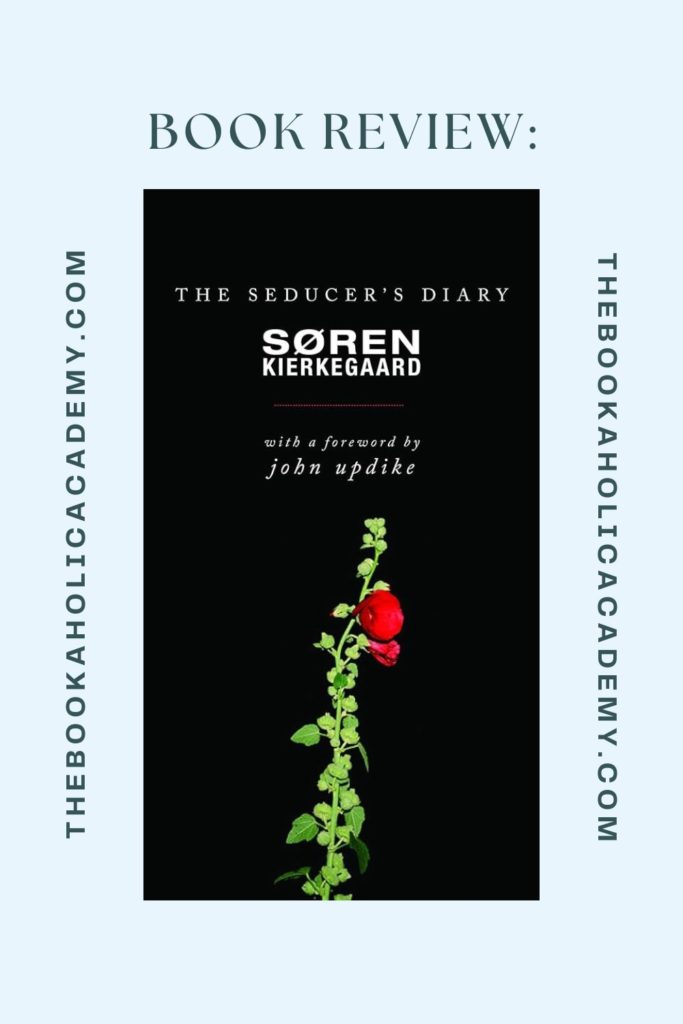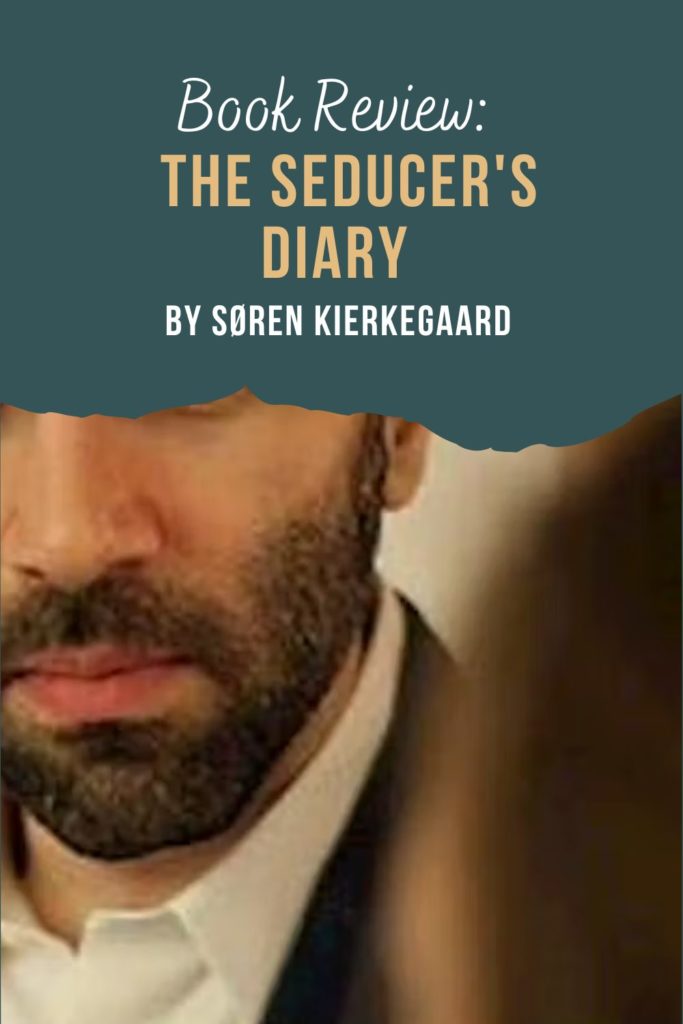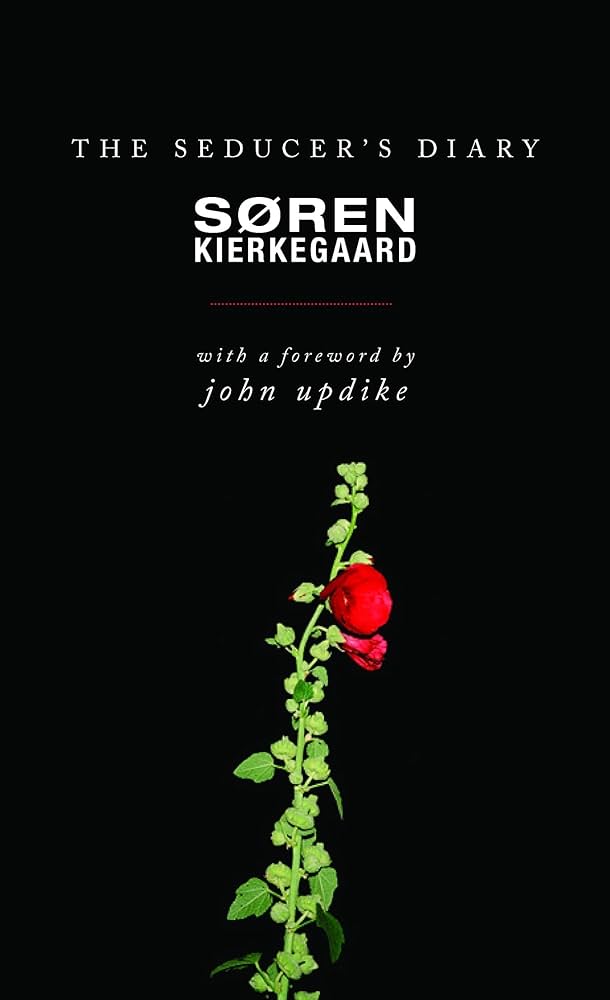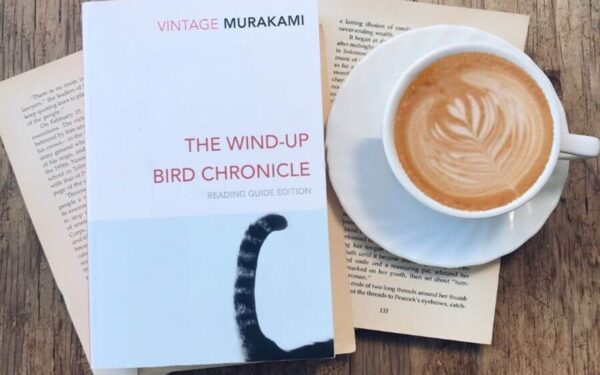Review: The Intriguing Depths Of The Seducer’s Diary by Søren Kierkegaard

Disclaimer
This post may contain affiliate links. I will make a small commission if you make a purchase through one of these links, at no extra cost to you. See full disclosure and disclaimer policy HERE.
Delving into the realms of literature often leads us to profound insights and reflections on the human condition. “The Seducer’s Diary” by Søren Kierkegaard is one such work that captivates readers with its deep psychological exploration and philosophical musings. In this article, we embark on a journey through the pages of this intriguing book, uncovering its themes, characters, and the profound questions it poses.
Table of Contents
Plot Summary | Spoiler Alert |
In The Seducer’s Diary, Søren Kierkegaard presents a compelling narrative that delves deep into the psyche of its characters. The story revolves around Johannes, a young man determined to seduce a beautiful and innocent young woman named Cordelia.
Johannes, the protagonist and narrator, meticulously documents his elaborate scheme to win Cordelia’s affection. Through his diary entries, readers are given insight into Johannes’ calculated approach to seduction, as he employs charm, manipulation, and deception to achieve his goals.
As the narrative unfolds, Johannes reveals his inner conflict, grappling with his own moral conscience and the ethical implications of his actions. Despite his initial success in winning Cordelia’s affection, Johannes finds himself increasingly torn between his desire for conquest and his growing affection for Cordelia.
Meanwhile, Cordelia remains unaware of Johannes’ true intentions, entranced by his charisma and seemingly genuine affection. However, as Johannes’ manipulative tactics become more apparent, Cordelia begins to question his sincerity, leading to a dramatic confrontation between the two characters.
Through its complex characters and thought-provoking narrative, The Seducer’s Diary invites readers to confront their own assumptions about love, morality, and the nature of human relationships.
As Johannes’ facade crumbles and Cordelia finds strength in adversity, the story serves as a powerful reminder of the consequences of deception and the enduring power of authenticity and integrity.
Exploring The Depths
Kierkegaard, a Danish philosopher, theologian, and poet, is renowned for his existentialist philosophy, which delves into the depths of human experience and consciousness. The Seducer’s Diary is a part of his broader philosophical work, exploring themes of love, seduction, morality, and the nature of existence.
Themes And Philosophical Underpinnings
The narrative dives into a myriad of profound themes that resonate with readers long after the final page is turned. Below are some of the central themes explored throughout the book:
- Love and Desire: At the heart of the story lies the exploration of love and desire, showcasing the complexities and nuances inherent in human relationships. Kierkegaard delves into the various manifestations of love, from genuine affection to manipulative seduction, prompting readers to reflect on the nature of their own desires and attachments.
- Morality and Ethics: The book grapples with questions of morality and ethics, particularly in the context of Johannes’ manipulative tactics to seduce Cordelia. Through Johannes’ internal struggles and moral dilemmas, Kierkegaard invites readers to ponder the ethical implications of one’s actions and the pursuit of personal desires at the expense of others.
- Authenticity and Deception: Central to the narrative is the dichotomy between authenticity and deception, as Johannes navigates the fine line between genuine emotion and calculated manipulation. Kierkegaard prompts readers to question the authenticity of human interactions and the masks we wear to conceal our true intentions.
- Existential Angst: Johannes’ inner turmoil and existential angst serve as a recurring motif throughout the book, reflecting Kierkegaard’s broader existentialist philosophy. Through Johannes’ introspective reflections, readers are confronted with the inherent uncertainties and anxieties of human existence, prompting deeper introspection into the meaning of life and one’s place in the world.
- Freedom and Responsibility: The narrative explores the interplay between freedom and responsibility, highlighting the consequences of one’s choices and actions. Johannes’ pursuit of Cordelia raises questions about the ethical boundaries of personal freedom and the moral obligations we owe to others.
- Gender Dynamics: Kierkegaard subtly examines gender dynamics and power structures within romantic relationships, particularly in the context of Johannes’ attempts to seduce Cordelia. The book offers insight into the complexities of gender roles and societal expectations, challenging traditional notions of masculinity and femininity.
- Loneliness and Isolation: Beneath the surface of Johannes’ outward charm lies a profound sense of loneliness and isolation, reflecting the universal human experience of longing for connection and intimacy. Kierkegaard’s portrayal of Johannes’ inner turmoil serves as a poignant reminder of the inherent vulnerability of the human condition.
Through its exploration of these rich and multifaceted themes, The Seducer’s Diary invites readers on a thought-provoking journey into the depths of the human psyche, prompting reflection on the complexities of love, morality, and the search for authenticity in a world marked by deception and desire.
Character Analysis
Johannes emerges as a complex and enigmatic character, embodying the archetype of the seducer. His inner turmoil and existential angst provide insight into the human psyche, as he navigates the murky waters of desire and moral ambiguity. Cordelia, on the other hand, represents innocence and purity, serving as a foil to Johannes’ manipulative nature.
Writing Style And Impact
Kierkegaard’s writing style is both eloquent and thought-provoking, drawing readers into a rich tapestry of philosophical inquiry and psychological introspection. His use of language is poetic yet accessible, inviting readers to ponder the deeper meanings beneath the surface narrative.
RELATED:
Review: The Tragically Optimistic Man’s Search for Meaning by Viktor E. Frankl
Conclusion
In conclusion, The Seducer’s Diary is a captivating exploration of love, morality, and the complexities of human nature. Through its intricate narrative and profound philosophical insights, Kierkegaard challenges readers to confront their own assumptions and beliefs about love and authenticity.
FAQs
Did you like it? Pin this post for later!











